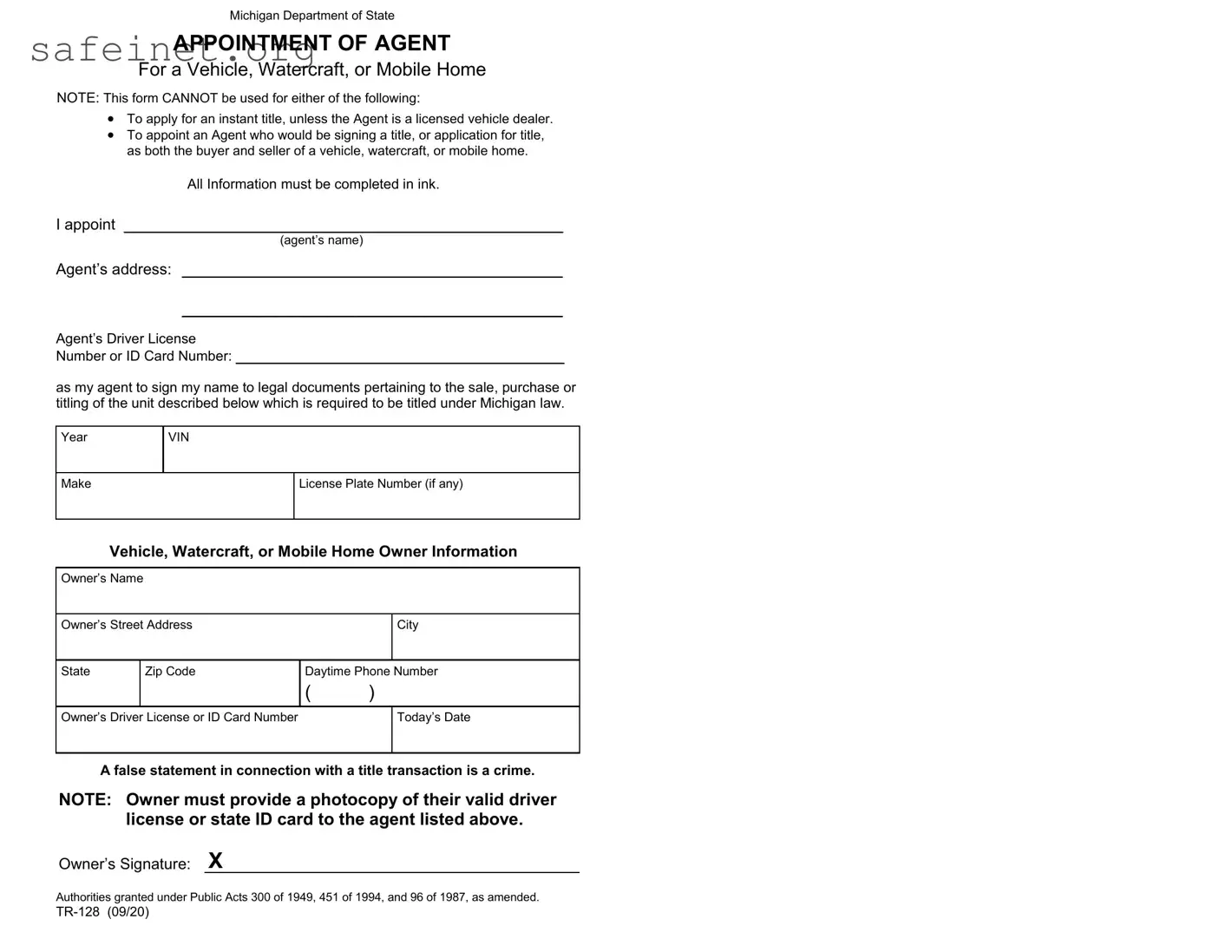What is the Vehicle POA TR-128 form?
The Vehicle POA TR-128 form is a legal document used to appoint a person as your agent to act on your behalf for vehicle-related matters. This could include tasks such as transferring ownership, registering a vehicle, or handling any issues related to your vehicle title with the Department of Motor Vehicles (DMV).
Who can be appointed as an agent using this form?
You may appoint anyone you trust as your agent, provided they are an adult and legally capable of performing the tasks you assign them. This could be a family member, a friend, or a legal professional.
How is the Vehicle POA TR-128 form completed?
To complete the form, provide your name and contact information, along with the same details for the person you wish to appoint as your agent. Clearly describe the powers you are granting, and ensure that both you and your agent sign and date the document. Make sure to follow any specific guidelines based on your state’s regulations.
Is the Vehicle POA TR-128 form required for all vehicle transactions?
This form is not required for every vehicle transaction. However, it becomes particularly useful in cases where you cannot be present to complete a transaction, such as when you are out of state or unable to physically attend the DMV.
Do I need to notarize the Vehicle POA TR-128 form?
Notarization requirements may vary by state. While some states do not require notarization, others may require it for the form to be legally binding. It is advisable to check your state’s regulations or consult with a legal expert.
How long is the Vehicle POA TR-128 form valid?
The validity period of the form can vary based on state laws and the specific tasks you assigned to your agent. Generally, the POA will remain in effect until you revoke it or until the specified tasks are completed. You should check the form for any specific stipulations regarding duration.
Can I revoke the Vehicle POA TR-128 after completing it?
Yes, you have the right to revoke the Vehicle POA at any time, as long as you are able to do so legally. To revoke it, you should create a revocation notice, sign it, and notify your agent and any relevant authorities, such as the DMV.
What if my agent cannot perform their duties?
If your agent is unable to perform their duties for any reason, you should consider appointing another person as your agent. It is important to ensure the new appointment follows the same procedures outlined for the initial appointment.
Where can I obtain the Vehicle POA TR-128 form?
The Vehicle POA TR-128 form can usually be obtained from your local DMV office or downloaded from your state's DMV website. Make sure you are accessing the most current version of the form to ensure its legal validity.
Are there any fees associated with submitting the Vehicle POA TR-128 form?
There may be fees involved in processing vehicle transactions that your agent will undertake using the form. It is advisable to check with your local DMV for any relevant fees related to specific services, as they may differ by location and service type.

